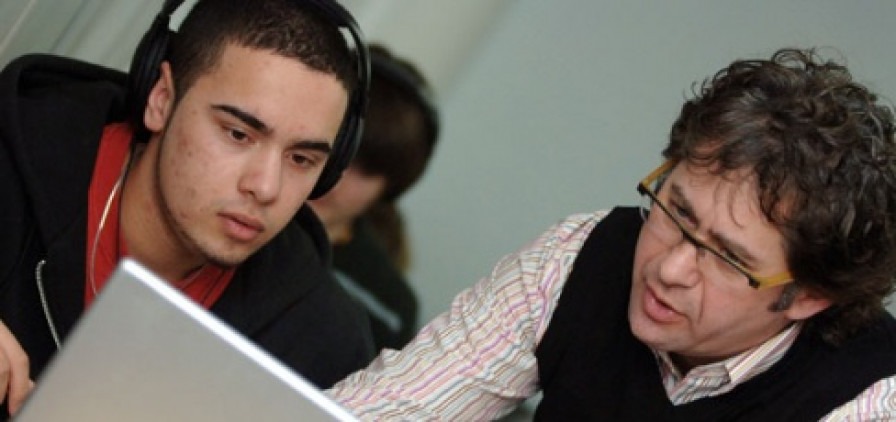Organisations' Journeys Through Music-based Mentoring: Remix, Bristol

A Case Study from the Youth Music Mentors programme ...
This page is part of a resource pack on Music-based mentoring.
ABOUT REMIX
REMIX is Bristol's Youth Music Action Zone, delivering a wide range of music-making opportunities for under 19s, in particular those who have had limited access to such resources in the past.
REMIX and music-based mentoring
The Remix Youth Music Mentoring project is administratively based in the education department at the heart of Bristol's famous venue, the Colston Hall. Their mentoring approach has evolved over the years, says former coordinator Siggi Patchit.
An early project had 19 starters, 12 completers, with six adult mentors and 19 peer mentors. Each mentee had 10 sessions one to one, then a series of ten group-based Wednesday evenings. The group phase was too spread out: 50% attended more than half, "five or six got something worthwhile." Almost all young people were known to Remix before starting.
A project called Renovation then ran from January to April 2010 staffed by Siggi, Alex and Jack as the two advanced mentors and six former peer mentors, now mentors. Geared towards writing and recording an EP, it began with six hours of orientation training for the mentors, followed by 19 weeks of one-hour mentoring sessions in one big room, concurrently allowing Siggi, Alex and Jack to circulate, monitor what was going on, and help out where necessary. This in turn was followed by one full week of four hours a day, starting with one to ones, then gradually integrating with other members of the group, leading to a performance in the Colston Hall foyer. "We knew we wanted to use Renovation as an advocacy project, videoing sessions and trying to show what mentoring was about and how it might be spread", commented Siggi. "This led us to choosing mentees who could sustain this, though they were still in challenging circumstances. You have to give experiments the best chance of working. We also modified the format in the light of experience. The earlier extended 10-group sessions without a performance focus had been too long drawn out, so we learned from that for Renovation."
In 2011 Remix experimented with an integrated approach, injecting a one-to-one mentoring strand into a Friday night open programme. This was for young people in the target group recruited from a Foyer and an inner city youth centre in which they have had a lot of sustained support from the senior youth worker. "Some young people find it really hard to be in a group," says Siggi. "Our model gives them space to 'be' around the edges and over a period of time to test out relationships with other mentees at their own pace."
Two other aspects characterise the Remix approach. First is that of 'grow your own mentors'. Several of the current mentors, under the coordination of an experienced youth worker in Loben, started as mentees, then progressed through volunteers: Remix has invested strongly in training to support this progression. Another key aspect is the emphasis on reflective practice, which has been developing over the programmes with now consistently insightful reflections being made that inform future strategy with individual mentees.
Siggi talks of his own journey as coordinator:
"how I've come to realise what the most important things about a mentoring project are. It's been a brilliant learning process. Mentoring is always at the core of what we are doing but I've only recently realised that. Understanding music is the excuse." And he goes on: "For all young people identity is key and music is crucial to finding out who you are through experimenting with different styles, and genres".
An example of MUSIC PRODUCED DURING THE music-based mentoring programme at Remix:
All about you by Youth Music Network

